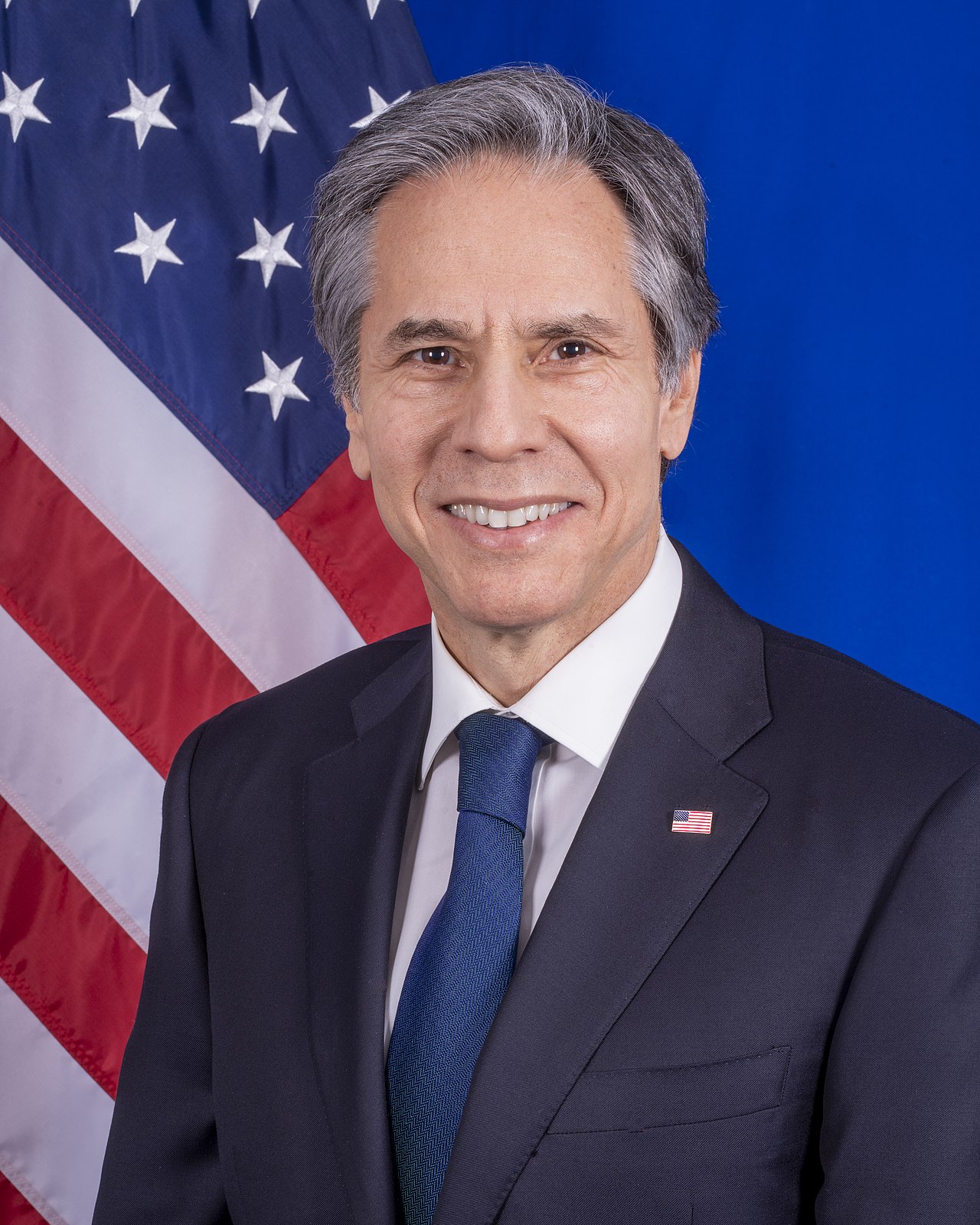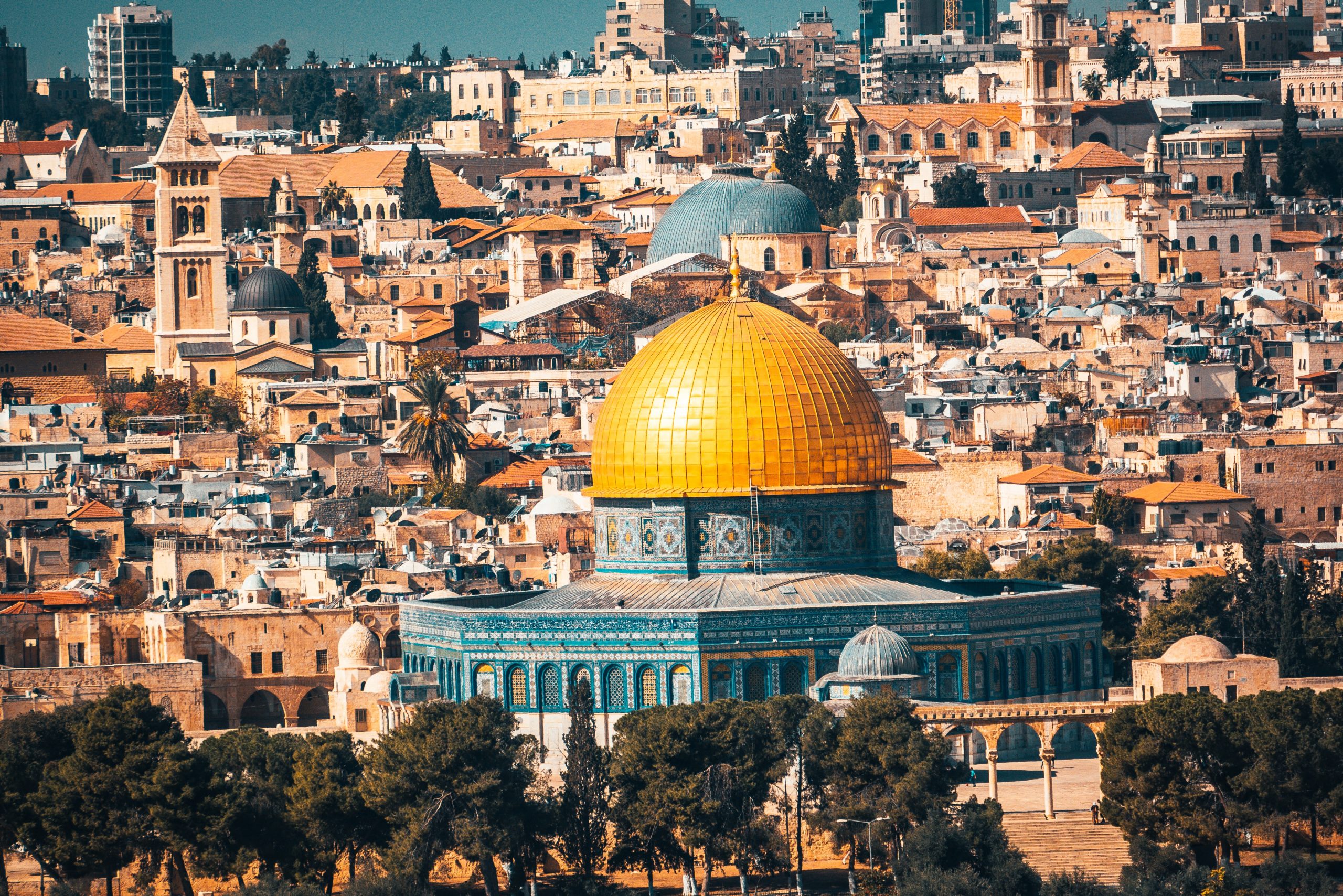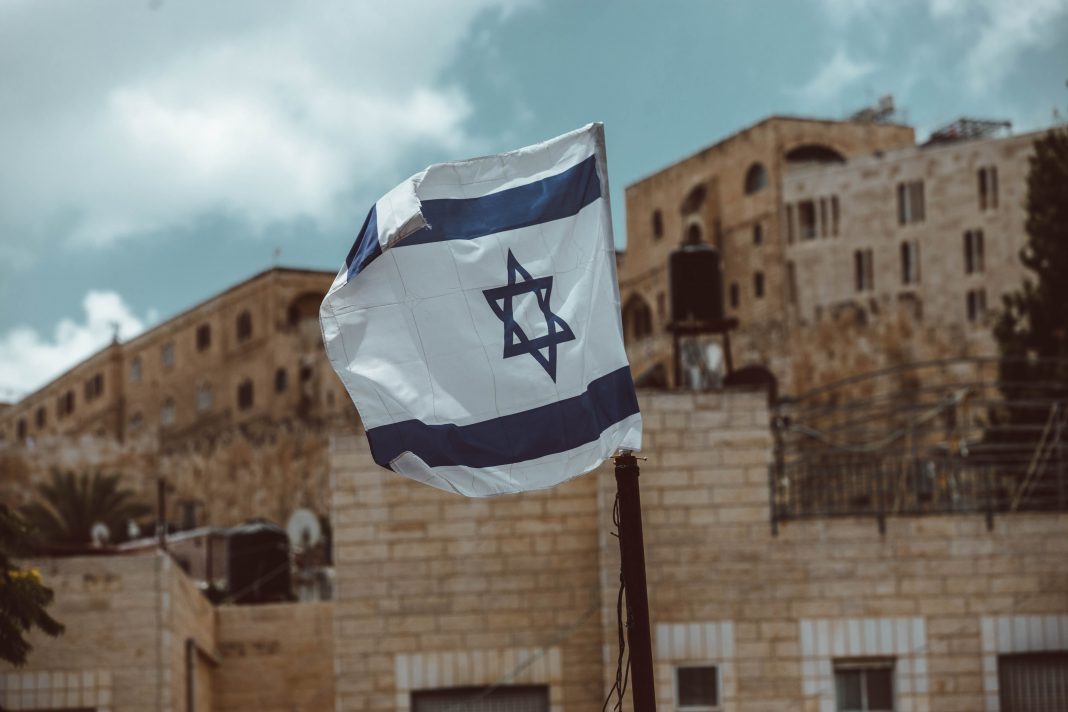The interview – by Alice Pistolesi
 Internal politics animated by strong conflicts, accusations of an apartheid-like system, the new relations with the US Administration and the state of play of the Abrahamic agreements. An interview with Davide Assael, philosopher, scholar of Jewish thought, and President of the Lech Lechà association, who takes stock of some of the most topical Israeli issues.
Internal politics animated by strong conflicts, accusations of an apartheid-like system, the new relations with the US Administration and the state of play of the Abrahamic agreements. An interview with Davide Assael, philosopher, scholar of Jewish thought, and President of the Lech Lechà association, who takes stock of some of the most topical Israeli issues.
On 1 February 2022, Amnesty International published a report denouncing the Israeli Apartheid system. What has been the reaction in Israel?
The reactions to Amnesty International’s report have followed a script that had already been written, and which is repeated with every statement by NGOs, humanitarian institutions or those linked to the cogent and abstract ideal of human rights. They have been welcomed as a new manifestation of an anti-Zionist (actually, anti-Semitic) prejudice that does not recognise Israel and the Jews’ right to defence both by the Israeli government (through the words of the Minister of Foreign Affairs, Yair Lapid) and by the Jewish institutions of the diaspora (as signalled by the President of the World Jewish Congress, Ronald S. Lauder). The settlements are experienced by Israeli citizens as a reaction to Palestinian-Arab attacks and it is not understood why the narratives proposed by humanitarian associations remove their historical origin. It is clear that this is a fossilised narrative, which does not take into account the de-ideologisation that has driven the continuous construction of new housing units for purely commercial reasons related to the housing market – a market which has long flourished in Israeli territories in the West Bank. In short, an ideological-political veneer is being given to an expansion that has long had much more prosaic motives.
As an aside, however, I would say that the constant exchange of accusations that punctually involves humanitarian institutions and the Jewish State also has deeper roots. In my opinion, the starting point is different cultural data. The universalist horizon that certainly unites both cultures, in Judaism must be reconciled with the needs of the State, in a dialectic between universal and particular that runs through the entire tradition of Israel from its origins. If a humanitarian principle is made absolute, as humanitarian organizations are accused of doing, without taking into account the needs of affirmation and defence of the Jewish State, any dialogue will remain sterile.
Has anything changed in Israeli policy ever since the Biden Administration?
The change in the US Administration was awaited with some apprehension by politics, but also by Israeli society. Trump, who has never made a secret his closeness to the Jewish State, also for personal reasons (e.g. Kushner), was considered a friend also by that political party that represented a diametrically opposed line on every other issue. The reasons for this proximity are certainly to be found in some historic decisions taken by the old US Administration, starting with the transfer of the embassy from Tel Aviv to Jerusalem, which resolved an American ambiguity that had lasted for decades. But the more concrete reasons are to be found in the withdrawal from the agreement on the Iranian nuclear issue, which was carried out by Obama, but also dealt with personally by Biden. It was logical, therefore, that the change in the White House should be observed with particular attention. Tempers were partly calmed by the announcement of Biden’s government team: as a Secretary of State was chosen Anthony Blinken: Jewish, close to the Israeli cause, and a profound connoisseur of the Middle East. Kamala Harris herself, apart from a few minor episodes that have provoked some reaction in Israel, has always indicated as a priority the right to the defence of Israel against Palestinian terrorism and Hamas missiles. For now, pending developments that I do not think will be long in coming, the situation is at a stand-by. Judgment is only delayed and it will not be easy for Biden to hold together the complex Middle East picture.

How can we describe the current Israeli government, particularly with regard to its relations with Palestine?
First of all, it is a government that was born is “against” someone, not as standing “for” something. The someone is, of course, Benjamin Netanyahu, the ruler of Israeli politics for about twenty years. His figure, which is now also at the centre of several judicial investigations for corruption and abuse of power, had become too cumbersome. A burden for the left, which had never found an antidote to his ability to coagulate forces around his populist rhetoric, but also for the right. For a long time, several figures much younger than him had been pawing at his heels, but the road was blocked by what is, to date, the longest-serving prime minister in the history of the state.
A stalemate that was really putting Israeli society in crisis, starting from the political-administrative immobility dictated precisely by Bibi’s desire to subordinate collective reasons to his own personal affairs. For him, holding on to power was the way to escape investigations, and he was willing to do anything to reach his goal. He did not hesitate to inflame a society always on the brink of conflict. He did not hesitate to create institutional clashes by putting the government and the judiciary on opposing sides. He has always had a conflictual relationship with then President of the Republic, Rivlin (of his own party, among others). As a result, Israel had not approved a state budget for two years, which was completely unsustainable. Add to this the constant search for consensus, which led to a less than exemplary handling of the pandemic, and you get the picture.
In order to beat Netanyahu, who had polarised the country into two numerically almost identical parts, it was necessary to rely on a heterogeneous majority. This objective was taken to the letter, given that the current government headed by Naftali Bennet includes an arc that goes from the Arab-traditionalist list headed by Mansour Abbas (a first in Israeli history) to the liberals of Yair Lapid. There is everything and its opposite, but it was the only way to get rid of Bibi, who – by the way – is just waiting for a good opportunity to return.
The government came into being despite the Gaza conflict last May, which had seen the tragic news of clashes in Israel’s Arab cities. The government agreement signed shortly afterwards also leads, in my opinion, to blur the ideological scope of those events, often attributable to pure urban violence, directed by local powers that I would not hesitate to define as small-time mafia. For some time there have been those in Israel who denounced a suspicious circulation of weapons among the civilian population. These cries went completely unheeded, but then it became clear that they made sense. In short, the birth of the government demonstrates what I was saying above: the Western eye on Israel does not take into account how the ideological winds are increasingly in the shade in the conflict with the Palestinians. These are typical dynamics of such prolonged crises: processes become entrenched and local political groups responding to specific interests occupy the space previously occupied by ideologies. Propaganda still has a footing, but the context is not that of ’67.
Bennet and the conflict with the Palestinians: it looks like a situation that will not easily change.
As far as the Bennet government’s ability to influence the resolution of the conflict is concerned, I would say it is zero. The Israeli-Palestinian dossier is simply on a dead end. Any decision would displease someone, with the risk of starting a war. There is nothing left but the status quo, which means continuing to build houses in order to be in an advantageous situation when the time comes, which we do not even know if it will ever come, to sit down at the negotiating table.
Does this mean, in effect, moving towards Greater Israel from the Mediterranean to the Jordan? It would seem so, but there remains the serious demographic dilemma on which the most famous Italian-Israeli, Sergio Della Pergola, has largely written: how can one maintain a Jewish and democratic State in a territory that would be predominantly Arab? Either one renounces the Jewish attribute, but then one might as well stay in the Diaspora. Or one renounces democracy, but then accusations such as those of Amnesty International would have a different flavour even in the homeland, where there is still a large majority component linked to European culture and the liberal ideals of Western democracies. It would be a further fault line in a society that is already dramatically divided within itself. The Arab-Jewish fault is just one of those that run through Israel. All the more reason not to tackle the problem and let things take their natural course. In my eyes, this is not a reassuring scenario: the sooner the problems are addressed the better. Here we are ten years behind schedule.

What is the status of the Abraham agreements?
They suffered a setback after the clashes in May, but after the accession of the United Arab Emirates and Bahrain in 2020, two more countries, Sudan and Morocco, have also joined the group. In my view, they represent the most important foreign policy legacy of the Trump Administration and I have no hesitation in calling them historic in scope.
The normalisation of diplomatic relations between Israel and the Arab world was indeed unthinkable only a few years ago. Now it is a reality. If one then looks at the commercial and tourist exchanges, the re-creation of Jewish communities in places where they had not been seen for I don’t know how long, the possibility of civil aircraft of the reciprocal companies flying over their skies, one also understands the practical, and not only symbolic, impact they have had. Of course, if anyone naively imagined that the agreements would reach Saudi Arabia within a few months, they need to rethink their calculations. But such an option would have not been realistic in a scenario as troubled as the Middle East.
The real problem is that these are agreements signed in the name of a common enemy: Iran. On both sides (and here I am including Saudi Arabia as well) it was considered the real strategic rival. Teheran had acquired areas of influence thanks to its decisive support in the fight against Isis. It is an heir state of ancient Persia, which has preserved imperial memory and military capacity. The war with Iran is the real nightmare of the Israeli generals, who are well aware that they are facing an enemy with an army that is competitive in every aspect. Iran’s nuclear programme is the biggest threat they believe hangs over the Jewish state’s head, and any alliance to contain it is welcome.
Now, however, Biden seems determined to conclude a new agreement, also because it is the Israelis themselves who denounce how uranium enrichment has not stopped at all. The dilemma is always the same: to include Teheran in the international community in order to better control it, or to corner it to the point of suffocating it? Perhaps by waiting for a phantom regime change, which Obama and Biden considered utopian back in 2015. If a new agreement is signed, Biden will have to be able to explain it to his Middle Eastern allies, and at that point, it is by no means certain that the trajectories of Israel and the Arab world are still going in the same direction. Perhaps the US will be able to assert its alliance, perhaps some will move towards China, which now has planetary ambitions. Russia, by now back with both feet in the Middle East, will also have its say. There are so many variables on the horizon and the United States, worn out by an internal polarisation with few precedents, has repeatedly demonstrated its own ineptitude in this historical phase. It will be decisive to understand how the Iranian scenario evolves, and from there we will also see the fate of the Abrahamic Agreements: if Israel and the Arab states find themselves on the same front, they will continue and in all likelihood extend, otherwise the idea of Israel as an intruder in the land of Islam will begin again.
How intense is the social, political and religious conflict in Israel?
As far as the internal opposition in Israel is concerned, I would say that these strategic trajectories are, for better or worse, shared. They concern the very protection of the Jewish State, in which dissident stances are entrusted to a very few voices that seem more a remnant of past political and ideological frameworks. If, on the other hand, one thinks of an opposition understood as the reality of opposing fronts in the internal scenario, I would say that there is far too much of it. Not in the sense of a concrete political proposal, but of a social dialectic that has reached levels of internal separatism. The communities almost do not talk to each other and do not recognise each other. The rift between the secular and religious worlds is increasingly deep. Many young secularists go abroad for fear that their state will turn into a kind of theocracy. This is a totally improbable scenario, but certainly, also thanks to Netanyahu’s twenty years of rule, religious parties, some of which are not even Zionist, have gained more and more weight. The fact is that Israel is experiencing the internal conflicts that all advanced democracies are going through at the moment. If we add to this the fact that it has 20% Arab citizens, who are often, at least in words, hostile to the State, we can understand how difficult it is becoming to hold together a society which, in spite of what is believed in Europe, is an extraordinary mosaic of different cultures and traditions. This is beautiful, but also dangerous.
Cover Image: Taylor Brandon, Jerusalem (2020)
























